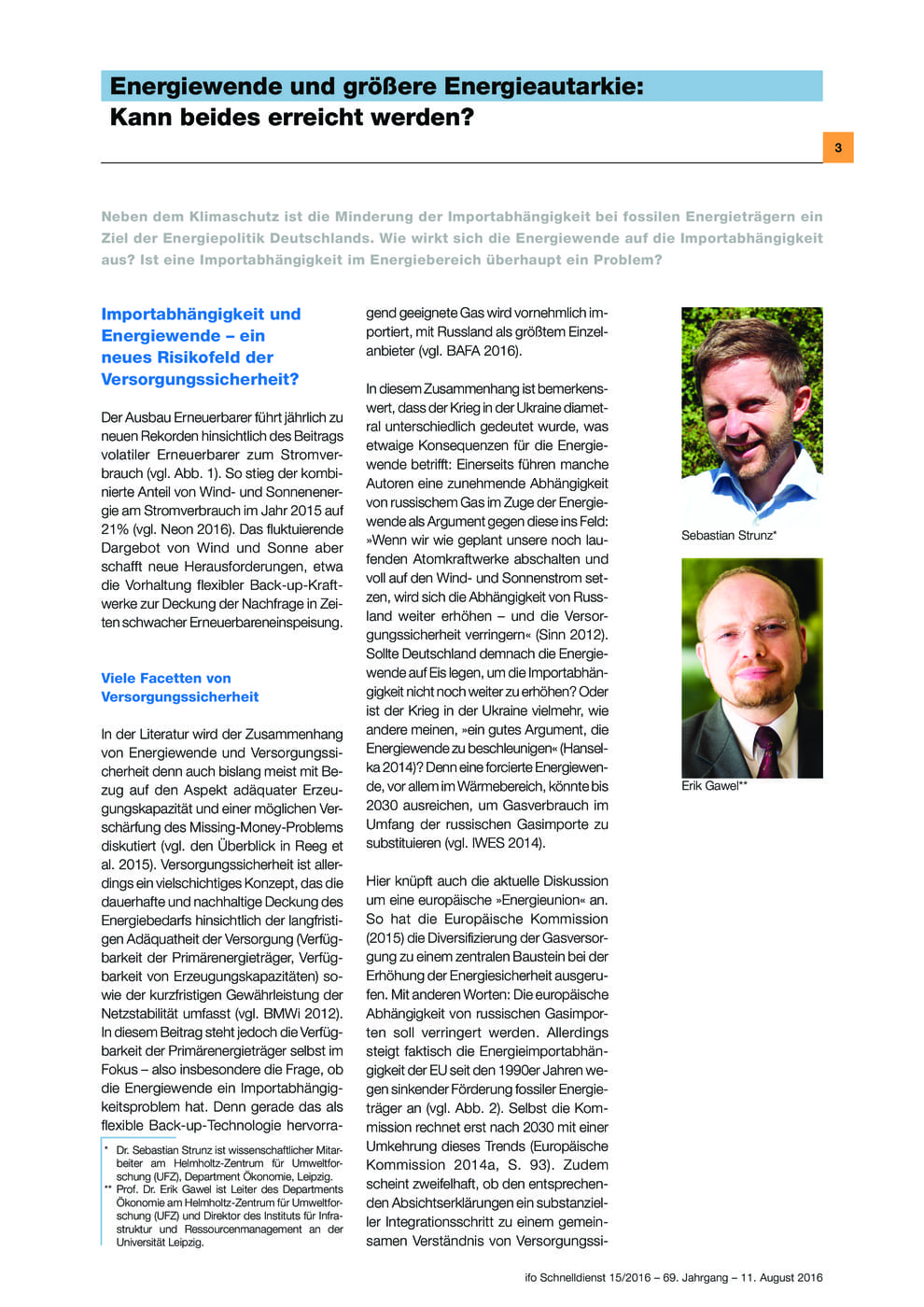Energy Turnaround and Greater Energy Self-Sufficiency: Can Both Be Achieved?
ifo Institut, München, 2016
ifo Schnelldienst, 2016, 69, Nr. 15, 03-16

Alongside climate protection, one of the goals of Germany's energy policy is to reduce its dependency on imports of fossil fuels. What impact will the energy turnaround have on import dependency? Is import dependency in the energy sector really a problem? According to Sebastian Strunz and Erik Gawel, Helmholtz-Zentrum für Umweltforschung, University of Leipzig, the energy turnaround has no "import dependency problem". The dependence that arose in the past, especially on Russian gas imports, cannot be blamed on energy turnaround goals. To ensure, however, that natural gas does not turn into the "Achilles heel" of the energy turnaround, a diversification of the offering should be introduced in the short and mid-term, and incentives for other flexibility options should be provided in the long term. For Hubertus Bardt, Institut der deutschen Wirtschaft Köln, the energy turnaround is structurally dependent on international trade-offs and open electricity markets, and cannot succeed based on the vision of autonomous energy supply. A stronger Europeanisation of energy and electricity policy is of central importance in this instance. The concept of energy independence is pointing in the wrong direction. International division of labour opportunities need to be used to successfully manage the energy turnaround. Andreas Seeliger, Hochschule Niederrhein, underlines that economic efficiency, environmental compatibility and security of provision are the relevant factors; and that the energy turnaround is only one instrument and/or a mix of instruments. The example of the USA also shows that the energy turnaround and energy independence can be achieved simultaneously. Although it may not be possible to draw any final conclusions, based on the present situation the energy turnaround can only be realised at the expense of greater energy independence. Politicians should therefore strive for a slightly more balanced weighting of their targets in the future. Sibyl D. Steuwer, FU Berlin, also emphasises that energy independence is not a stand-alone goal in the triangle of energy policy. Striving for energy independence is more of a strategy for achieving the target value of supply security and minimising dependence on energy imports and foreign policy uncertainties.